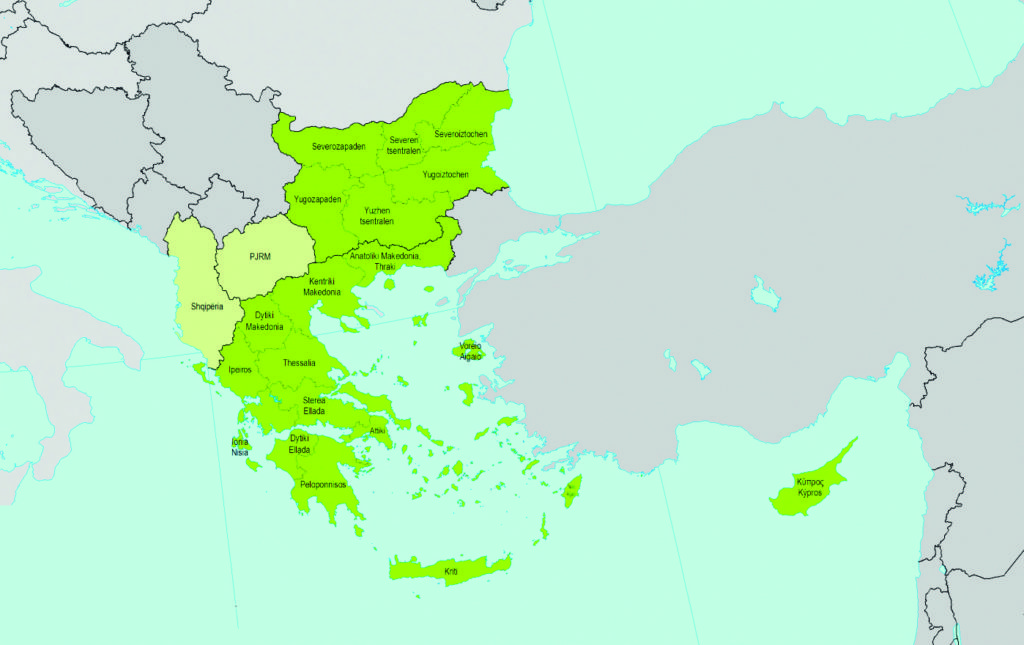UrbanWater-Energy Cycle:
from its source to its end-users and back to the environmentWATenERGY CYCLE
The Project
The University of Thessaly participates as a partner in the WATenERgy CYCLE project, which aims to promote innovative technologies and strengthen transnational cooperation, to improve environmental protection and the efficiency of water and energy resources between 5 countries involved (Bulgaria, Greece, , Albania, former Yugoslav Republic of Macedonia) from the Balkans side of the Mediterranean. WATenERgy CYCLE is a tool for the joint design, training and implementation of an integrated and multilevel approach to the urban, rural and industrial environment, through pilot actions for the application of innovative control technologies & amp; reduction of energy and leaks in the water distribution cycle, networking, training and exchange of know-how. The Special Secretariat for Water in collaboration with EDEYA will contribute to the formulation of policy proposals at national and European level in the field of management and protection of resources (drinking water and energy) in the drinking water distribution cycle.

Goals of WATenERgy CYCLE
The WATenERgy CYCLE program aims to develop a common methodological approach to the efficient and effective transnational management of water and energy resources, in line with the EC Water Directive 2000/60. The common challenge is to increase the low level of use of new technologies throughout the water cycle, from the source of water to final consumers and back to the environment, and at the same time increase resilience to climate change.
Borders as an Opportunity
The WATenERgy CYCLE project was designed based on the problems of water supply network management in the “Balkan – Mediterranean” region.
Specialization Network
The cooperation consists of members of the region, key players in the water sector: 5 Utilities, 2 Authorities / Associations (ERDF), 1 Research Foundation and 2 Observers (EU & IPA level). The results will affect the whole region, providing practical guidance, methodologies and policies to address a wide range of issues, which should be defined in cases of transnational cooperation. “INTERREG Balkan-Mediterranean 2014-2020” is a new Cooperation Program, which stems from the strong will of the participating countries in the “Balkan-Mediterranean” region to promote cooperation in the region after the end of the “South East Europe 2007-2013” program. . The program brings together five (5) countries, three (3) EU Member States (Bulgaria, Cyprus and Greece) and two (2) candidate countries, Albania and the Former Yugoslav Republic of Macedonia. This is the first time that European cooperation has dealt with the Balkan Peninsula and the Eastern Mediterranean as a whole, transcending maritime and land borders, in an effort to contribute to the Europe 2020 strategy for smart, sustainable and inclusive development.
Expected Results
increase the level of use of innovative technologies related to climate change and overall efficient water management
reduction of water losses and non-reciprocal water (NRW) in water networks
save water by informing consumers (shorter charging periods) as their consumption will be recorded by smart water meters
Energy recovery through the installation of special equipment at selected locations in the network
Development of an action plan for the implementation of water pricing policies, based on the FWC and the principle of "socially equitable pricing"



